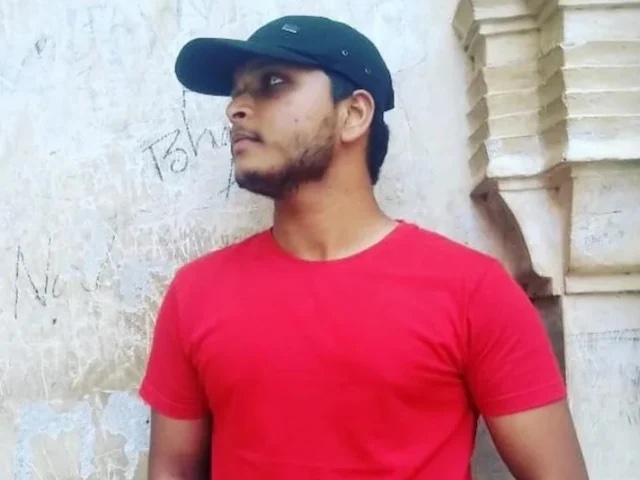Diaspora body suggests ways to prevent Indian student deaths

Mohammad Abdul Arfath
FIIDS asks different agencies, universities, and students organizations to work towards addressing the issue
In the wake of a spike in tragic deaths of Indian students in the US, the Foundation of Indian and Indian Diaspora Studies (FIIDS), has issued a set of recommendations to prevent such cases.
Over a span of 4 to 5 months, a spike in tragic deaths of Indian students in the United States has raised significant concerns among the Indian American community as well as the Indian population, the diaspora organization noted.
As the American Bazaar reported on Tuesday, since January 2023, at least 12 Indian or Indian American students have died under mysterious circumstances on US campuses. The latest student to die was Mohammad Abdul Arfath, who was found dead in Cleveland, Ohio, after going missing for three weeks.
FIIDS said it analyzed the causes of these incidents and found that they range from suspicious shootings/kidnapping, environmental deaths due to lack of safety knowledge (monoxide poisoning, hypothermia), mental issues triggering suicides, and even suspicious accidents to violent crimes.
READ: At least 10 Indian or Indian American students died in US under mysterious circumstances since Jan. 2023 (March 18, 2024)
Due to the sudden rise in deaths that are suspicious in nature, rumors are circulating around the Indian American community about potential hate crimes especially as many deaths are clustered around east and mid-west Universities, e.g. Cleveland Ohio, Illinois and Indiana, it said.
“Some of them fear that the hate crimes are fueled by negative propaganda against the community,” the diaspora body stated in a press release. “Even though FIIDS did not find any conclusive facts to support the rumors, they may need to be investigated to timely address their concerns.”
FIIDS said it is also launching a survey of Indian American students regarding their concerns and safety as it’s necessary to understand the current situation and safety requirements of international students, particularly those of Indian origin.
Dr. Lakshmi Thalanki from Boston, who collected data on the deaths of more than 10 students, noted, “The sudden surge of deaths among Indian students is alarming and suspicious”.
Khanderao Kand, Chief of Policies and Strategy, analyzing the data, said, “Indian origin students, according to Open Doors Report (ODR) are ~275k, making 25 percent of total foreign students and bringing in $9 billion per year in terms of fees and expenses.
“However, recent increase in their deaths is concerning and, if not addressed, would impact their confidence in the safety in of US universities, potentially impacting the inflow of students further.”
FIIDS issued several recommendations to the Department of State, Department of Justice, Education Department, Universities, Student organizations as well as the Indian American community.
To address various safety and well-being concerns faced by international students, FIIDS suggested these steps that should be taken proactively.
Improving Search and Rescue Procedures: Prompt response and effective search and rescue procedures are vital for ensuring the safety and well-being of students during emergencies or accidents.
Enhancing these procedures can minimize response times and maximize the chances of positive outcomes in emergency situations, thereby safeguarding the lives of students.
Implementing Stricter Rules Against Fraternity Ragging: Hazing and fraternity ragging pose serious risks to students’ physical and mental health, leading to accidents, injuries, and trauma.
Implementing stricter rules and regulations against such practices can help prevent these incidents and create a safer, more inclusive campus environment for all students.
Increasing Awareness of Risks and Safety: Many foreign students may be unfamiliar with the risks associated with living and studying in a new country, both on and off campus.
Increasing awareness of these risks and safety measures can empower students to take proactive steps to protect themselves and their peers from potential dangers, enhancing overall safety and well-being.
Providing Mental Health Support: Foreign students, particularly those facing isolation or cultural adjustment challenges, may be at higher risk of mental health issues.
Providing accessible and culturally sensitive mental health support services can help address these challenges, ensuring students receive the support needed to thrive academically and personally.
Additionally, investigating any hate crimes or conspiracies against Indian-origin foreign students, based on their ethnicity or religion, is essential to ensure justice, protect the rights of affected students, and prevent further discrimination or violence against minority communities, FIIDS stated.
By addressing these issues proactively, universities and relevant authorities can create a safer and more inclusive environment for all students, fostering a conducive learning environment where everyone can thrive, it stated.
To further strengthen the recommendations and ensure the safety and well-being of Indian-origin students in the United States, additional steps should be taken to address hate crimes and rumors of conspiracies targeting this community, FIIDS stated.
It asked the State Department to collaborate with relevant agencies and foreign embassies to establish reporting mechanisms for hate crimes targeting Indian students.
FIIDS also asked the State Department to provide guidance and support to consulates and diplomatic missions to assist victims of hate crimes and ensure their rights are protected.
It wanted the Department of Justice and FBI to form a dedicated task force to investigate hate crimes against Indian-origin students and communities, ensuring thorough and impartial investigations.
Overall, these recommendations aim to create a safer and more supportive environment for foreign students studying in the United States, promoting their well-being and academic success, FIIDS stated.

